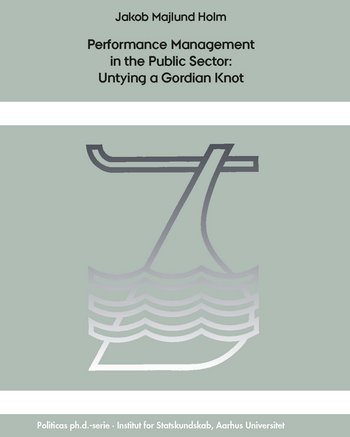Jakob Majlund Holm
Performance Management in the Public Sector: Untying a Gordian Knot

How can public managers use performance information to improve organizational performance? To answer this question, this dissertation puts forward and tests a model that describes the process of purposeful use from a manager receives a data report until the organization has changed its practice and improved its results. The main argument is that in a public sector where politicians and citizens focus on performance failures, public managers are motivated to use performance information to solve problems. I test this hypothesis in a series of strong research designs and find support for it, although the dissertation also illustrates the pitfalls that can occur in the process. I find that two contextual factors can reduce public managers’ responsiveness to performance failures. One is multiple aspiration levels that make it difficult to form an opinion on whether a result is a success or a failure. The other is political interaction. A finding from my studies is that managers who process performance information as preparation for a meeting with a politician are driven by a wish to avoid blame, which could lead them to evaluate performance information more positively. The last conditioning factor worth emphasizing is time and durability. In the dissertation, I find that a prerequisite for success is that managers think long term and provide their decisions with sufficient time to work when they initiate a strategy to solve organizational problems.
![]() Ophavsretten tilhører Politica. Materialet må ikke bruges eller distribueres i kommercielt øjemed.
Ophavsretten tilhører Politica. Materialet må ikke bruges eller distribueres i kommercielt øjemed.